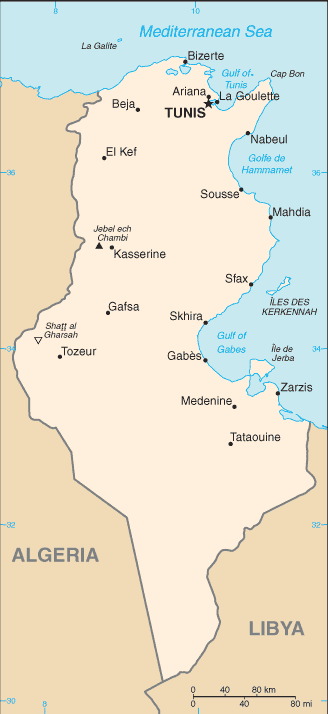Tunisia

The Republic of Tunisia has an estimated population of 10.4 million (UN, 2010). The capital is Tunis. Tunisia has an area of 164,150 sq km (685,524 sq miles). The main languages are Arabic (official) and French.
Tunisia has been a stable and prosperous country since it gained independence from France in 1956.
The first president of Tunisia Habib Bourguiba, established rights for women, which remain one of the most advanced in the Arab world. He abolished polygamy and established compulsory free education for all. Tunisia is seen as an example for its efforts to fight against all forms of violence and discrimination based on gender. Women are well represented in the political, social and economic spheres of the country.
- Tunisia has not signed or ratified the Protocol to the African Charter on Human and People's Rights on the Rights of Women in Africa (The Maputo Protocol).
- The Convention on the Elimination of All Forms of Discrimination against Women (CEDAW) was ratified by Tunisia on the 20th of September 1985.
- Tunisia has not yet adopted a National Action Plan on United Nations Security Council Resolution 1325 (UNSCR 1325).
- There are no former or current UN peacekeeping mandates in Tunisia.
Source:BBC, AlertNet, CIA, UN, SIGI,
